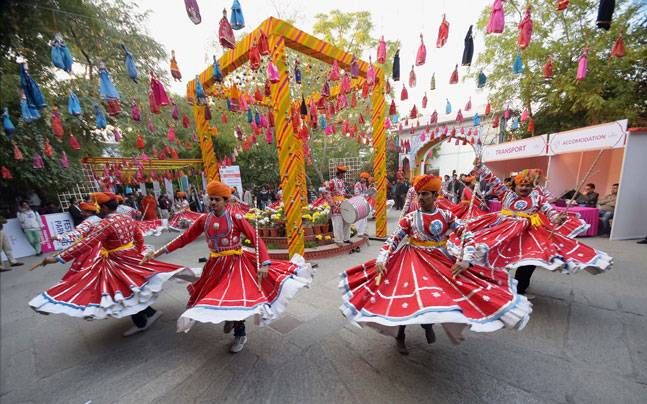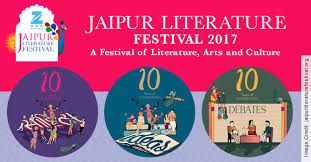Jaipur Literature Festival
Jan 25, 2019 • 4 views
Diggi Palace, like every other year, was lit up, not only by the tasteful decorations, but also by the vast literary pool who showed up from all parts of the globe.

Session 1- Because we are; A portrait of My Father:
“I know I am, because he is.”- Meghna Gulzar
The above are lines from a poem which Meghna Gulzar eloquently expressed for her father, none other than Gulzar, a champion of poetry himself. The speakers and the interviewer seemed to be well in tune with each other, which made it easier for the audience to follow their conversation. Since the book is something is Meghna Gulzar’s depiction of her father’s life, a lot of it revolves around the strong father-daughter bonding. Their attachment towards each other was comforting to observe throughout the length of the session, standing strong in a world full of volatile relationships. One could mark the dedication with which he has raised his daughter; be it from the simple task of braiding her hair, to inculcating in her the core values of discipline, responsibility and integrity in every work she does.
Session 2- Beyond the Female Eunuch, Germaine Greer
Building a life should be a greater priority for the women of today rather than obsessively getting hair extensions.- Germaine Greer
Germaine Greer, a feminist in her own right, captured the audience’s attention within seconds with her spontaneous wit and opinionated statements. I would not go as far as to call her views balanced, however, she talked about several things normally carpeted even in modern society.
What I liked about her, is that no matter how polarised her views might’ve been, she never enforced her opinions onto her listeners, in fact she openly said that she would invite questions to the statements she makes, for it is only a part of the learning process.
A take away from this session would be that humour can be a very effective tool in driving the truth home even about the most serious of issues.

Session 3; Yinning the Yang-
This session actively promoted the shirking away of inhibitions and striking up of conversation about issues which are not very openly talked about, be it sexuality, marital rape or anything which generally makes people uncomfortable. One should identify the cause of that discomfort in the first place, and reflect upon the thought process to eliminate bias and prejudice from one’s life.
The question of-“Why we read?” was also answered in quite a novel manner. According to one of the speakers, we read to be able to see other selves in yourself.” The reader- author dynamic can frame a connect via the medium of the written word, without having any prior knowledge of the context. Many unexplored topics such as ‘Tokenistic Inclusion Vs. Actual Inclusion’, or ‘intersectionality’ were talked about, which really opened up a whole new dimension to the conversation due to the sheer freshness of the topics.
As Madhavi Menon said- “Encounter and engage with your ‘otherness’. Do not have a fixed idea of who you are. Read across the borders.”
